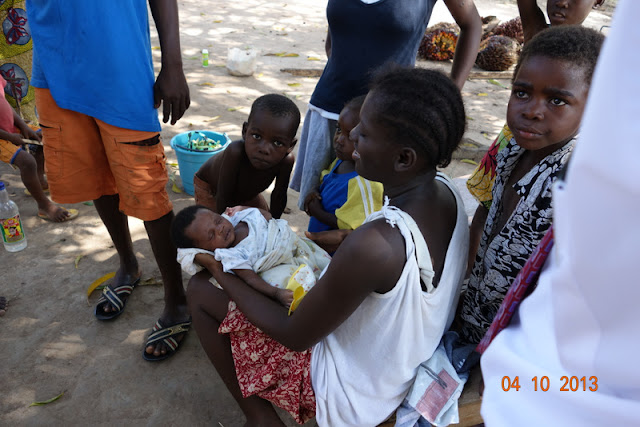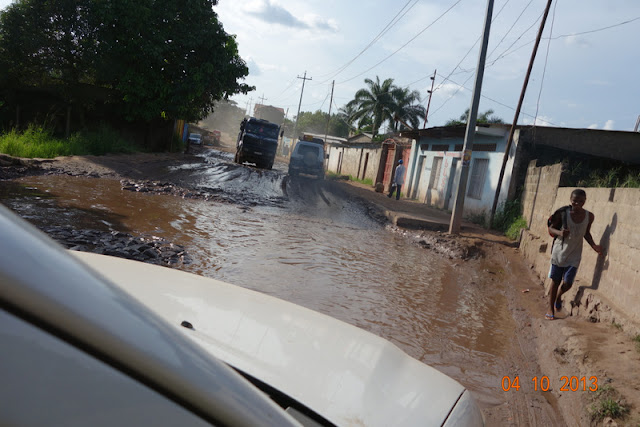 |
| More greeting and hugging. |
 |
| A path-side barber shop on the way to the well. |
 |
| The person in the chair collects the money from the users. |
 |
| Women with their water basins and bidons in which they carry water, usually without spilling. An amazing display of balance. A five gallon bidon weighs over 40 pounds. |
 |
| This little boy followed us around. He often toyed with his protruding navel. |
 |
| This little boy asked me to take his picture, so I did. |
 |
| Children learn to do the chores very young, without complaint. |
 |
| Our guide and translator helps a bread vendor move her display table so we can make the turn. The large umbrellas are patched with various pieces of old fabric, or tarp as they wear. |
 |
| We are deep in the village interior where the vendors line the route, in unbroken proximity, one against the next. |
 |
| At a certain point we must park the vehicle and continue on foot. |
 |
| The paths criss-cross the village. |
 |
| One of the springs we inspected for a future development is in a ravine surrounded by eroding sand cliffs. Recent rains washed sand and mud down around the outlets and made access more difficult. |
 |
| Young girls carrying water from the spring. |
 |
| Villagers drawing water. |
 |
| We passed this tiny courtyard, swept and flowering Cannas beautifying the space. |
 |
| A young girl delivering cooked fish and other victuals to be sold throughout the village for lunch. |
 |
| These women were happy to permit a photo of their sewing shop under a tarp for shade. They operated 3 treadle and electric Singer Sewing Machines for their enterprise. |
 |
| We passed pig raising stalls, and all were immaculate. Pigs of various colors were in most of the concrete stalls, protected by two chained dogs. |
 |
| This is a palm oil press. |
 |
| Palm oil press |
 |
| Two young water porters. Sister Merkley in the backgroung. |
 |
| These are palm oil fruit clusters. |
 |
| This "papa" was whittling palm frond staves into long thin strips to be woven into sleeping mats. |
 |
| This young mother was nursing her one month old child, and later seemed happy to have their picture taken. |
 |
| These three women permitted us to photograph them carrying fire wood. |
 |
| Residual mud holes left from recent rains. |
 |
| A large dump truck approaching the puddle. These were going back and forth carrying gravel and sand. |
 |
| Typical bottleneck at an intersection hear a marche on the road. |













1 comment:
Looks like you are having a true African experience. Stay safe!
Post a Comment